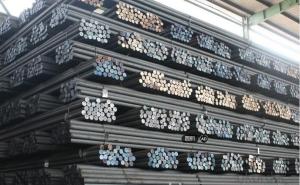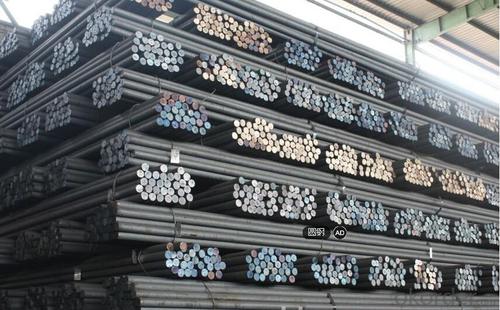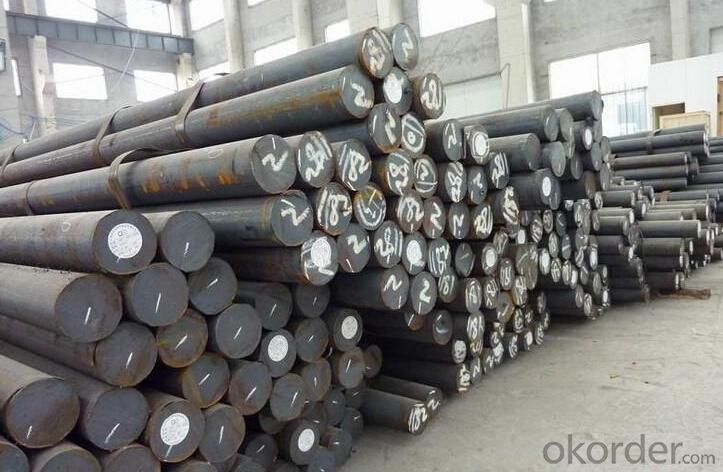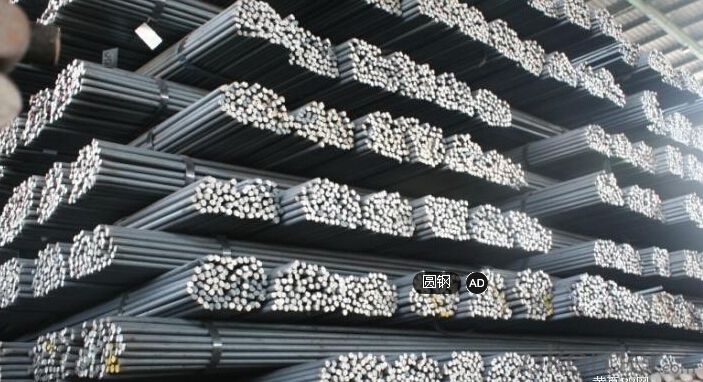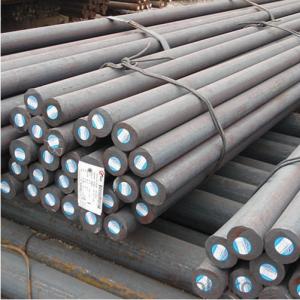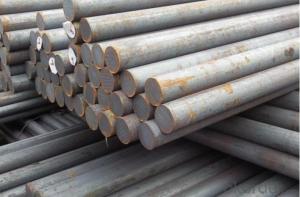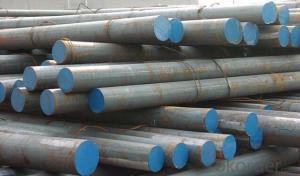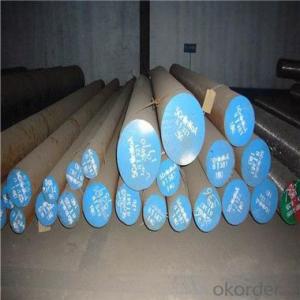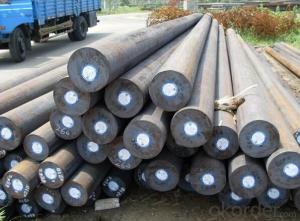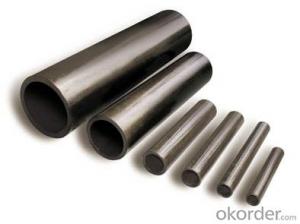Forged Steel Round Bar SAE1045/8620/ 4140/4130 Steel price per kgs
- Loading Port:
- Shanghai
- Payment Terms:
- TT OR LC
- Min Order Qty:
- 3 m.t.
- Supply Capability:
- 100000 m.t./month
OKorder Service Pledge
OKorder Financial Service
You Might Also Like
Specification
Forged Steel Round Bar SAE1045/8620/ 4140/4130 Steel price per kgs
Details Information of Forged Steel Round Bar SAE1045/8620/ 4140/4130 Steel price per kgs
| Name | Forged Steel Round Bar SAE1045/8620/ 4140/4130 |
| Shape | Round Bar/Square Bar/Flat Bar/Plate/Wire |
| Standard | GB/ASTM/SAE/AISI/DIN/JIS/EN/BS |
| Surface Treatment: | Black/Peeling/Polished/Machined |
| Delivery Condition: | Hot Rolled or Forged/Peeled or Black Surface |
| Test | SGS/UT 100% Elements Testing |
| Certificate: | ISO/Mill Certificate |
| Service: | 24 hours online service / |
| more than 20 years trading and manufacture | |
| Quality Assurance: | the third party inspection, such as SGS, BV, TUV…etc. is acceptable |
| Packaging Details: | Seaworthy Packaging or as per customer's packing instruction |
| Carbon structure round bar | Q195 Q235A Q235B 10# 20#-55# S45CB |
| Low alloy high strength round bar | Q345A/Q345C/Q345D Q345B Q345E |
| Alloy structure round bar | SAE51B20 20Cr 40Cr 40CrV 20CrMo/30CrMo/35CrMo/42CrMo 20CrMoA/30CrMoA/35CrMoA/42CrMoA/42Cr ML20CrMo/ML30CrMo/ML35CrMo/ML42CrMo B7/SCM435-440 20MnTiB 20CrMnMo 20CrMoH 42CrMoH 40MnB/40MnBH 30Mn2-40Mn2 27SiMn 50CrVA 30CrMnTi |
| Pinion steel | 20CrMnTi 20CrMnTiH 20CrMnTiHCS/20CrMnTiHLD Q20CrMnTi-1/Q20CrMnTi-2 |
| Sucker rod | 20-35CrMoA |
| Free-cutting steel | GT1215S |
| Spring steel | 60Si2MnA 65Mn |
| Ball bearing steel | GCr15 |
Chemical Composition of Forged Steel Round Bar SAE1045/8620/ 4140/4130 Steel price per kgs
| C | Si | Mn | P | S | Cr | Ni | Cu |
| 0.17-0.24 | 0.17-0.37 | 0.35-0.65 | ≤0.035 | ≤0.035 | ≤0.25 | ≤0.25 | ≤0.25 |
| Tensile strength (σb/MPa) | Yield strength (σb/MPa) | Elongation (δ5/%) |
| ≥410(42) | ≥245(25) | ≥25 |
Company Introduction of Forged Steel Round Bar SAE1045/8620/ 4140/4130 Steel price per kgs
CNBM International Corporation is the most import and export platform of CNBM group(China National Building Material Group Corporation) ,which is a state-owned enterprise, ranked in 270th of Fortune Global 500 in 2015.
With its advantages, CNBM International are mainly concentrate on Cement, Glass, Iron and Steel, Ceramics industries and devotes herself for supplying high quality series of refractories as well as technical consultancies and logistics solution.
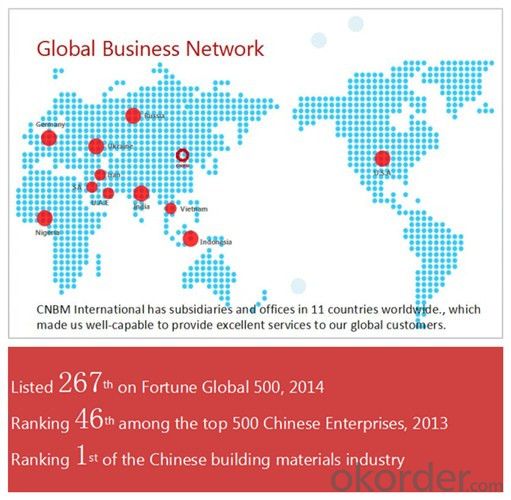
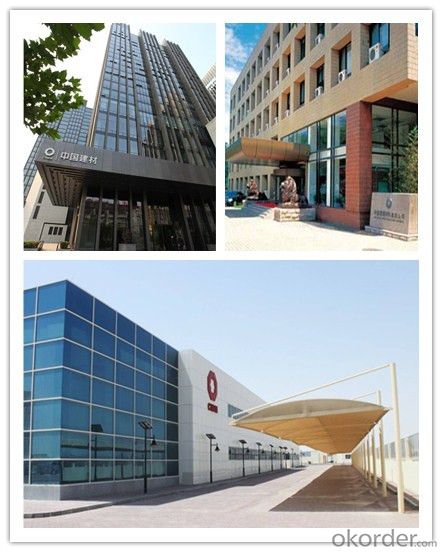
Certificates of Forged Steel Round Bar SAE1045/8620/ 4140/4130 Steel price per kgs
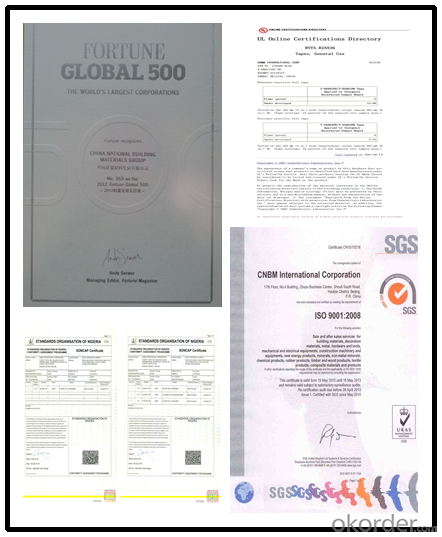
Packaging & Delivery of Forged Steel Round Bar SAE1045/8620/ 4140/4130 Steel price per kgs
Packaging Detail | Sea worthy packing /as per customer's packing instruction |
Delivery Detail | 15 ~ 40 days after receiving the deposit |
Products show of Forged Steel Round Bar SAE1045/8620/ 4140/4130 Steel price per kgs
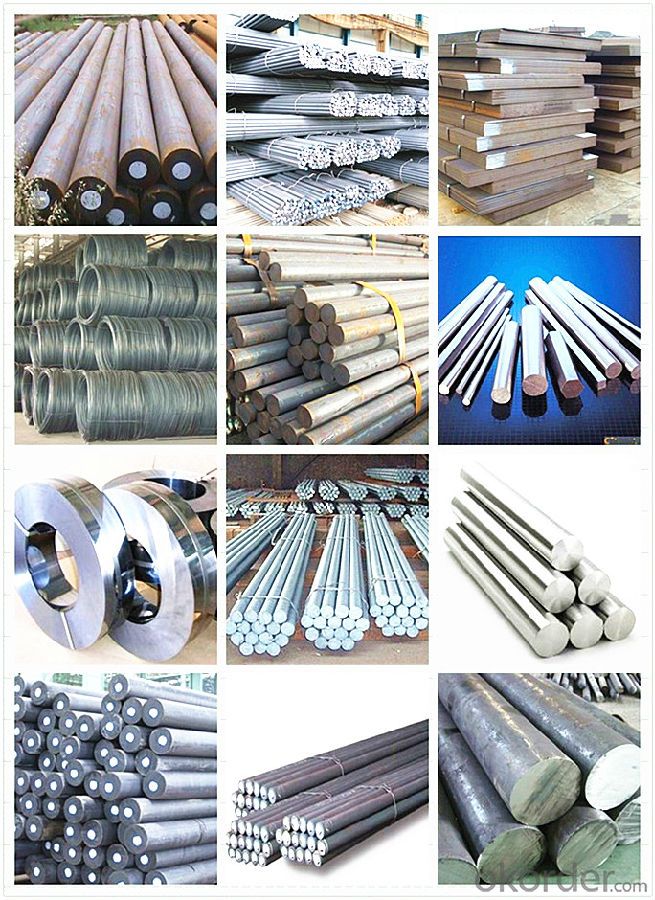
FAQ
Are you a trading company or manufacturer? | Manufacturer |
What’s the MOQ? | 3 metric ton |
What’s your delivery time? | 15-35 days after downpayment received |
Do you Accept OEM service? | Yes |
what’s your delivery terms? | FOB/CFR/CIF |
What's the Payment Terms? | 30% as deposit,70% before shipment by T/T |
Western Union acceptable for small amount. | |
L/C acceptable for large amount. | |
Scrow ,Paybal,Alipay are also ok | |
Why choose us? | Chose happens because of quality, then price, We can give you both. Additionally, we can also offer professional products inquiry, products knowledge train (for agents), smooth goods delivery, excellent customer solution proposals. |
What's your available port of Shipment? | Main Port, China |
What’s your featured services? | Our service formula: good quality+ good price+ good service=customer's trust
|
Where are your Market? | Covering more than 160 countries in the world |
- Q: Can special steel be used for making automotive engine components?
- Automotive engine components can indeed be crafted using special steel. Due to its remarkable strength, durability, and resistance to wear and corrosion, special steel is frequently employed in the manufacturing process. Engine components like crankshafts, connecting rods, camshafts, and valves necessitate materials capable of enduring high temperatures, pressures, and mechanical stresses. Special steel, encompassing high-strength alloy steel or stainless steel, fulfills these requirements and grants the essential performance characteristics for automotive engines. Furthermore, special steel presents the added advantage of reducing weight, thus contributing to improved fuel efficiency and engine performance. All in all, special steel emerges as a fitting material choice for automotive engine components, thanks to its exceptional mechanical properties and capacity to withstand the demanding conditions under which engines operate.
- Q: How is shock-resistant alloy steel used in the production of impact-resistant parts?
- Shock-resistant alloy steel is used in the production of impact-resistant parts to enhance their durability and toughness. This type of steel is specifically designed to withstand high impact forces, making it ideal for applications where parts are subjected to intense shock or sudden impact loads. By incorporating shock-resistant alloy steel into the manufacturing process, impact-resistant parts can better absorb and distribute the energy from impacts, thereby reducing the risk of damage or failure.
- Q: What are the emerging trends in the special steel industry?
- Some of the emerging trends in the special steel industry include the growing demand for lightweight and high-strength steel in the automotive and aerospace sectors, the increasing adoption of advanced manufacturing technologies such as additive manufacturing, and the focus on sustainability and eco-friendly practices in steel production. Additionally, there is a rising emphasis on research and development to develop innovative alloys and steel grades that offer superior performance and durability for various applications.
- Q: How does special steel contribute to the agricultural sector?
- Special steel contributes to the agricultural sector by providing durable and high-quality materials for various agricultural machinery and equipment. It enhances the performance and longevity of farming tools like plows, harrows, and combine harvesters, making them more resistant to wear and tear. Special steel also supports the construction of storage facilities, irrigation systems, and infrastructure in agriculture, ensuring improved efficiency and productivity in the sector.
- Q: Can special steel be used in the pharmaceutical manufacturing equipment manufacturing industry?
- Yes, special steel can be used in the pharmaceutical manufacturing equipment manufacturing industry. Special steel alloys such as stainless steel are commonly used due to their corrosion resistance, durability, and ability to withstand high temperatures and harsh chemicals. These qualities make special steel a suitable choice for various equipment used in pharmaceutical manufacturing, including tanks, reactors, mixers, and piping systems.
- Q: Can special steel be used in the manufacturing of firearms?
- Special steel is unquestionably applicable for firearm production. In truth, it is frequently favored for this purpose owing to its distinct properties that render it apt for enduring high temperatures, pressures, and stress. Firearms necessitate materials that possess strength, durability, and the capability to withstand the immense forces generated during firing. Special steel alloys, such as stainless steel or heat-treated steel, provide these desired traits and are extensively employed in fabricating firearm barrels, receivers, and other crucial constituents. The incorporation of special steel in firearm manufacturing guarantees the dependability, safety, and consistent performance of these weapons in diverse conditions.
- Q: What are the main applications of special steel in the chemical processing industry?
- Special steel is widely used in the chemical processing industry due to its unique properties and capabilities. Some of the main applications of special steel in this industry include the manufacturing of storage tanks, pipelines, and reactors. Special steel is resistant to corrosion, high temperatures, and chemical reactions, making it ideal for handling and storing various chemicals and substances. Additionally, special steel is also utilized in the construction of equipment used in the separation, purification, and filtration processes in chemical plants. Overall, the main applications of special steel in the chemical processing industry revolve around its durability, resistance to corrosion, and ability to withstand harsh chemical environments.
- Q: How does special steel perform in casting applications?
- Due to its unique properties and characteristics, special steel demonstrates exceptional performance in casting applications. Firstly, its excellent heat resistance enables it to withstand high temperatures during the casting process, ensuring that it maintains its shape and strength. Additionally, special steel possesses remarkable strength and toughness, guaranteeing that the final cast product will be durable and strong. Moreover, its superior corrosion resistance ensures that the castings remain intact and functional even in harsh environments. Furthermore, special steel's high wear resistance minimizes material loss and extends the lifespan of the castings. Lastly, its excellent machinability allows for precise shaping, cutting, and finishing during the casting process. In conclusion, special steel's exceptional heat resistance, strength, corrosion resistance, wear resistance, and machinability make it an ideal choice for casting applications, ensuring the production of high-quality and reliable castings.
- Q: What are the different corrosion-resistant coatings for special steel?
- There are several corrosion-resistant coatings available for special steel, including zinc coatings, aluminum coatings, stainless steel coatings, and ceramic coatings. These coatings provide a protective barrier that prevents the steel from coming into contact with corrosive elements, thus extending its lifespan and maintaining its structural integrity.
- Q: How does special steel contribute to the automotive industry?
- Special steel plays a crucial role in the automotive industry by providing high strength, durability, and corrosion resistance properties, which are essential for various automotive components. This type of steel is used in manufacturing critical components such as engine parts, chassis, suspension systems, and safety features like airbags and seatbelt mechanisms. It not only improves the overall performance and safety of vehicles but also helps in reducing weight, enhancing fuel efficiency, and meeting stringent emission standards.
Send your message to us
Forged Steel Round Bar SAE1045/8620/ 4140/4130 Steel price per kgs
- Loading Port:
- Shanghai
- Payment Terms:
- TT OR LC
- Min Order Qty:
- 3 m.t.
- Supply Capability:
- 100000 m.t./month
OKorder Service Pledge
OKorder Financial Service
Similar products
Hot products
Hot Searches
Related keywords
